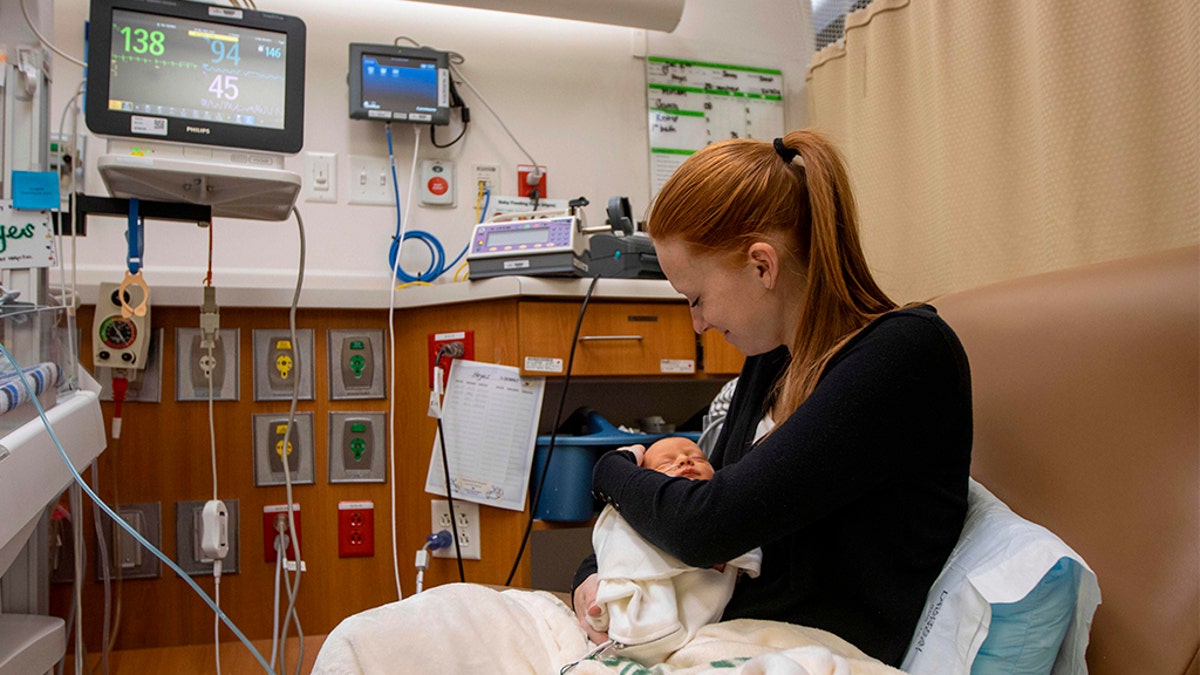Fox News Flash top headlines for May 19
Fox News Flash top headlines are here. Check out what's clicking on Foxnews.com.
Get all the latest news on coronavirus and more delivered daily to your inbox. Sign up here.
Federal figures released Wednesday show birth rates reaching record lows last year in the U.S., resulting in the lowest total in 35 years, The Wall Street Journal reported.
POLICY ANALYST ON FALLING BIRTH RATES: RHETORIC FROM THE LEFT CONTRIBUTING TO 'CHANGE IN NORMS'
In 2019, about 3.75 million babies were born in the U.S. -- down 1 percent from the previous year, provisional figures from the Centers for Disease Control and Prevention’s National Center for Health Statistics showed. In addition, the general fertility rate fell 2 percent to 58.2 births per 1,000 women aged 15 to 44. It is the lowest level since the government began tracking the figure in 1909, the report said.

Jenny Collins holds her infant son Hayes, born two weeks early in the Neonatal Intensive Care Unit(NICU) at the Intermountain Healthcare's American Fork Hospital on December 16, 2019 in American Fork, Utah. (Photo by Natalie BEHRING / AFP) (Photo by NATALIE BEHRING/AFP via Getty Images)
The figures released endorse the latest trends in American childbearing, which began declining during the 2007-09 recession, showing they never matched the economic growth when the economy rebounded. The provisional figures reveal millennials have been slower to form families than previous generations, in part, economists say, because they are less financially secure than those before them.
Those results are supported by experts, including fertility expert Melanie Brasher, an assistant professor of sociology at the University of Rhode Island, who said: “There are a lot of people out there who would like to have two children, a larger family, and there’s something going on out there that makes people feel like they can’t do that.”
CLICK HERE TO GET THE FOX NEWS APPm
Women in all age groups – excluding those in their early 40s – experienced a drop or held steady in birthrates, The Wall Street Journal reported. Meanwhile, teen births saw the sharpest drop, with a 5 percent decline in their birthrate. Since peaking in 1991, the teen birthrate has fallen 73 percent.
The Wall Street Journal contributed to this report.









































